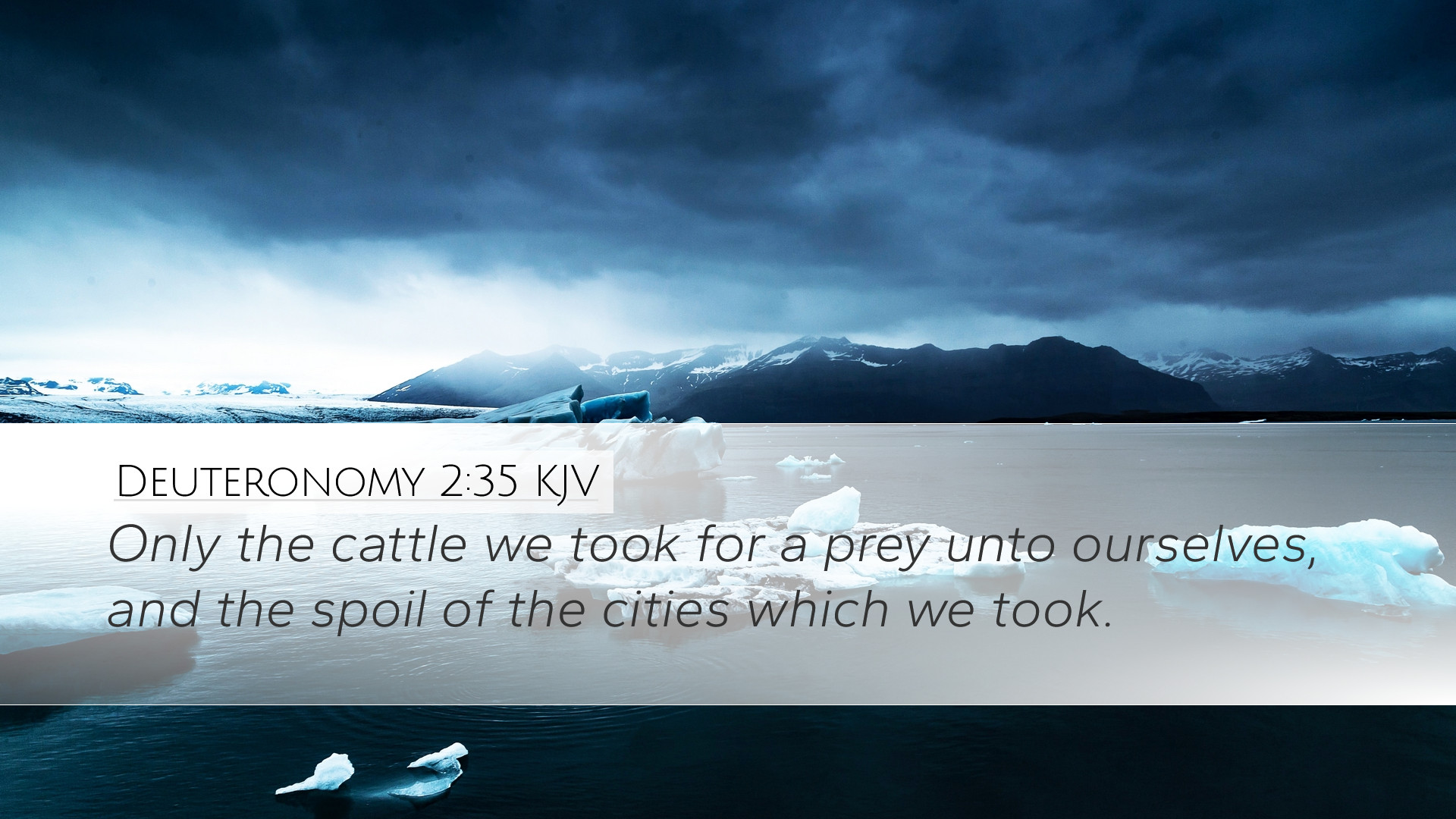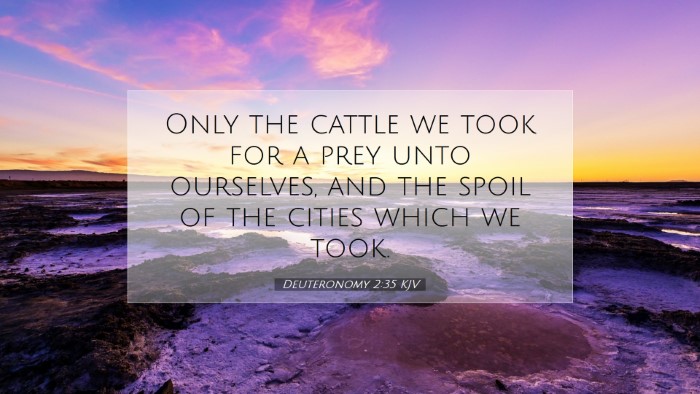Commentary on Deuteronomy 2:35
Verse Text: "And we took all his cities at that time, and utterly destroyed the men, the women, and the little ones, of every city; we left none to remain."
Contextual Overview
The verse is part of a larger narrative found in the Book of Deuteronomy, which serves as a reminder of God's actions and commands that guided the Israelites as they prepared to enter the Promised Land. This particular passage emphasizes the total destruction of the enemies of Israel, reflecting both the judgment of God and the necessity for Israel to maintain purity in terms of worship and lifestyle.
Interpretation and Insights
The destruction of entire cities as recorded in this verse raises challenging theological questions. Scholars and theologians wrestle with the implications of divine command in the context of warfare. The primary commentaries shed light on various dimensions of this intricate matter:
1. Divine Judgment
Matthew Henry emphasizes that this act of destruction was a fulfillment of divine judgment against nations whose iniquity had reached its limit. The emphasis is on the holiness of God and His right to execute judgment to remove evil from the land. In this case, these nations had been given multiple chances to repent, and their stubbornness led to their utter destruction.
2. The Necessity of Complete Removal
Albert Barnes comments on the necessity of totally removing these nations to prevent the Israelites from being influenced towards idolatry and the sinful practices that characterized the inhabitants of these lands. Barnes argues that the thoroughness of the act is indicative of God's intention to safeguard His people from corruption and to establish a holy nation.
3. Historical Context
Adam Clarke provides a historical lens, noting that such wars and acts of destruction were common in the ancient Near East. Clarke posits that the context of warfare and ancient practices must be understood against the backdrop of their significance in the narrative of Israel’s nationhood and identity. He emphasizes that the text reflects the severe realities of ancient conflict where total warfare was often the norm.
Theological Reflections
The implications of this verse for modern readers—especially pastors and theologians—invite deep reflection on issues of justice, mercy, and divine sovereignty:
1. The Nature of God’s Justice
The destruction of the cities can be understood as a manifestation of God’s justice. In a contemporary context, believers are invited to consider how justice must be administered—even while holding in tension the concepts of wrath and mercy. It challenges the modern understanding of justice to reconcile total destruction with the nature of God as loving and forgiving.
2. Ethical Considerations in Warfare
This verse invites a discussion on the ethical implications of warfare. For pastors, teaching on this subject requires careful navigation of the moral complexities inherent in violence, divine command, and the character of God in both the Old and New Testaments. Engaging with the texts should lead to discussions about peace-building and reconciliation in contemporary conflicts.
3. Application for the Church
The church today can glean insights regarding the call to purity and separation from sin. The complete destruction commanded against the enemies serves as a metaphor for the believer’s call to decisively address sin in their lives. This leads to a dual call: to understand the seriousness of sin while also holding on to the hope of redemption and grace found in Christ.
Conclusion
Deuteronomy 2:35 serves as a significant reminder of the nature of God’s holiness, the dynamics of justice, and the call to holiness for believers. By drawing on the insights of seasoned commentators, pastors and theologians can engage deeply with this text, offering nuanced understanding to their congregations and students.


